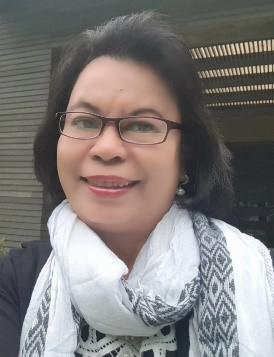Making a difference as a woman leader
Millions of marginalised women around the world live in extremely difficult and challenging circumstances. They need women leaders and colleagues to tell their stories and more importantly, help act and respond to their unique issues and circumstances.
My name is Maria Elena ‘Marlyn,’ for short. I am the UNAIDS Country Director (UCD) for Pakistan and Afghanistan and I would like to tell you the story of Afghan women in Pakistani refugee centers.
Refugee camps in Pakistan
Pakistan is a country of 207.7 million people, the sixth most populous country in the world. Poverty and inequality feed multiple religious and sectarian conflicts, insurgencies and violent extremism. It continues to face several challenges that impact the vulnerability of its people – encompassing natural and human-induced disasters. These include meeting the needs of 1.9 million internally displaced persons (IDPs); 1.45 million registered Afghan refugees as well an estimated 0.7 million undocumented Afghans who continue to reside in Pakistan. 2016 witnessed a sharp increase in the spontaneous return of undocumented Afghans as well as registered refugees due to various socio-political developments on both sides of the border.
Pakistan has high levels of unintended pregnancies, induced abortions and one of the highest maternal death-rates in the region (the maternal mortality rate is 178/100,000 LB). To help address these issues, UNFPA Pakistan is implementing a 3-year initiative (2018-2020) on the "Provision of Life-Saving SRH and GBV Services for Women and Girls in Cross-Border Areas in Pakistan"1. One of the components of this initiative is on "increasing STI and HIV services" and UNFPA had requested UNAIDS Pakistan to support this component, hence the joint mission to Peshawar, KPK province, last October 2018.
Meeting with Afghan women refugees
It was for the first time in my professional career that I met and interacted with women and children in refugee camps.
It is important to understand that in this part of the region, women culturally are not allowed to go out without being accompanied by male family members (i.e. father, brother, uncle). They also do not uncover their face around men who are not family members. This has been a traditional practice for generations.
In this particular situation, Dr Tehsin Fatima, Deputy Director of Reproductive Health, Project Directorate Health, requested me to personally talk to the Afghan women in the refugee centers, listen to the issues and challenges they face, and see if there is something I can do to help address those issues. (note that both Dr Fatima and I are women)
Personally interacting with them and listening to Afghan women, made me increasingly realize the vital role that women in leadership position play in, inter alia, advocating for better access to basic social and health services (including HIV/AIDS) in particular, and in advancing women empowerment efforts in general.
With this very unique cultural context, women leaders find it less difficult to reach out (compared to male leaders) to other women and talk about sensitive issues like personal hygiene particularly during menstrual periods, reproductive health, signs and symptoms of common sexually transmitted infections (STIs), HIV/AIDS, etc.
As leaders, I think women have sharper interpersonal skills, are more empathic, compassionate and show genuine care in addressing women-issues. Being women themselves, it is likely that they can relate to the same issues. Hence, after talking to the Afghan women, I think they felt they were gradually being heard, understood, supported and valued as human beings.
A parting note to women colleagues
Let us continue to amplify the volume of the voices of women that need our support- our global sisters. Let us help provide an enabling and empowering environment so barriers to assert their basic rights, including rights to access correct information, quality education and comprehensive health & HIV/AIDS services, can be broken. Let us be responsible sisters to them.
1 Provision of Life-Saving, SRH and GBV Services for Women and Girls in Cross-Border Areas in Pakistan, UNFPA, September 2018



